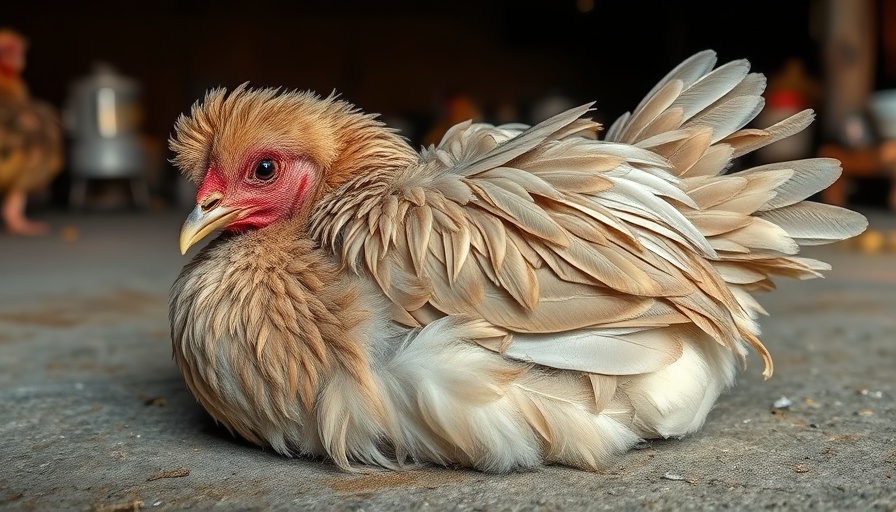
The Hidden Dangers of Keeping Poultry at Home
Many families love birds, especially those fluffy, cute chicks and hens that can sometimes even lay fresh eggs! However, what many parents might not know is that poultry can spread serious diseases that could harm not only their feathered friends but also the entire family. This enlightening look into how your poultry might be unintentionally spreading farm-wrecking diseases offers eye-opening insights for all bird lovers.
Understanding Common Diseases
First, let's explore some of the common illnesses associated with poultry. Birds can carry diseases like avian influenza, Newcastle disease, and Salmonella without showing any symptoms. This means your well-loved pet can quietly transmit these diseases to your family without anyone realizing it. It's vital for parents to understand these risks and maintain proper hygiene while handling their birds and cleaning their habitats.
Five Surprising Ways Your Poultry Could Spread Illness
Here are five surprising ways poultry can spread harmful diseases:
- Direct Contact: The most common way diseases spread is through direct contact with the birds. When your kids pet or handle the birds, they may unknowingly touch their face afterward, allowing germs to enter their system.
- Bird Droppings: Poultry droppings can be a major source of pathogens. If your children play in the yard where there are droppings, they might come into contact with bacteria that can make them sick.
- Equipment Sharing: Tools and feeding equipment can also transmit disease if they have been used on infected birds.
- Airborne Particles: Even tiny particles from feathers or droppings that are airborne can pose a risk, especially for kids with asthma or allergies.
- Water Sources: If poultry drink from outdoor puddles, these sources can become contaminated with harmful bacteria that may spread to humans.
Why Education and Prevention Are Key
It’s crucial for parents to educate their children about the importance of hygiene when interacting with birds. Washing hands thoroughly after handling poultry or cleaning their cages can significantly reduce the risk of disease transmission. Setting a good example through consistent hand-washing can make a huge difference in keeping everyone healthy.
The Emotional Wholesomeness of Poultry
Despite these risks, family poultry can enrich your child’s life. Birds can teach children about responsibility, empathy, and nurturing. Helping to care for the birds fosters emotional well-being and can be a fulfilling activity that brings the family together. This is where balance comes in - it’s about enjoying the positivity that comes with caring for animals while being vigilant about health.
Create a Safe Environment
To maintain a safe atmosphere while raising poultry, consider the following tips:
1. Make sure your poultry is healthy and comes from a reputable source.
2. Implement a regular cleaning schedule for the bird’s area to minimize exposure to droppings.
3. Avoid letting your poultry roam freely in spaces where your kids play.
Your Role: Advocating Wellness
As parents, not only do you want to promote a healthy environment but also emphasize the importance of mental wellbeing. Encourage children to recognize and express their feelings about caring for animals, and also empower them to know the right practices for maintaining health around their feathered friends. Understanding these dynamics shapes a balanced and healthy lifestyle.
Conclusion: A Balanced Approach to Pet Poultry
Keeping poultry at home can be a delightful experience for families. However, it's essential to take precautionary measures to ensure that everyone stays healthy. Understanding how poultry spread diseases helps you create a safe environment for your kids while still enjoying the joyous experience of having feathered friends. Remember, promoting good hygiene habits today can lead to healthier choices for your family in the future.
 Add Row
Add Row  Add
Add 




 Add Row
Add Row  Add
Add
Write A Comment